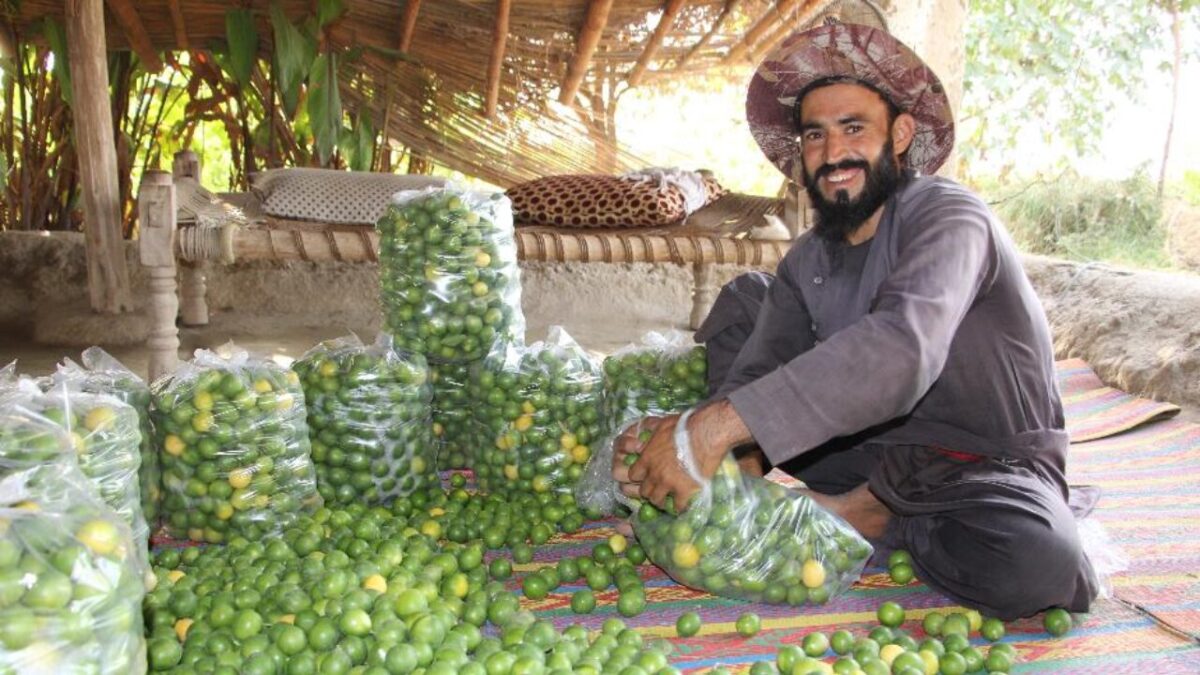KABUL, Afghanistan — The United Nations Food and Agriculture Organization (FAO), International Organization for Migration (IOM), and United Nations Development Programme (UNDP) have launched a $16.2 million initiative to bolster resilience in Afghanistan’s rural communities. Funded by the European Union, the Afghanistan Community Resilience Programme (ACRP) aims to improve livelihoods, food security, and climate adaptability in Kandahar, Helmand, and Badghis provinces.
Running from 2024 to 2026, the program is expected to benefit over 7,000 vulnerable households by increasing agricultural productivity, fostering alternative livelihoods, and improving access to markets.
Focus on sustainable livelihoods
The ACRP plans to enhance food and nutrition security by boosting production of staple crops, high-value agricultural products, and livestock. The program will also create job opportunities through cash-for-work initiatives and support for small and medium-sized enterprises (SMEs).
Water resource management is a cornerstone of the initiative, with plans to rehabilitate irrigation canals, construct water-harvesting structures, and develop alternative livelihoods for former poppy farmers. These efforts aim to shift communities from emergency aid to sustainable resilience.
Additionally, the program will establish multi-hazard early warning systems in areas prone to disasters, enhancing preparedness and safeguarding lives and agricultural livelihoods.
Inclusive and participatory approach
The ACRP emphasizes inclusivity, prioritizing support for those most affected by Afghanistan’s challenges, including economic instability, climate change, and the Taliban’s poppy cultivation ban. Households will be selected using criteria developed in consultation with local communities and stakeholders.
“The European Union’s steadfast commitment to building climate resilience and supporting Afghan rural communities remains critical,” said Veronika Boskovic Pohar, the EU’s chargé d’affaires to Afghanistan. “This initiative underscores our priority to mitigate the impacts of climate change, which disproportionately affect women and children.”
Collaborative impact
The program builds on years of work by U.N. agencies in Afghanistan, including FAO’s focus on agriculture and livestock, IOM’s support for returnees and displaced communities, and UNDP’s alternative livelihood projects.
“This partnership allows us to combine expertise for greater impact,” said Stephen Rodriques, UNDP Afghanistan Resident Representative. “Our focus includes agro-processing, sharia-compliant financing, and disaster risk reduction infrastructure.”
FAO Afghanistan Representative Richard Trenchard highlighted the program’s importance in addressing Afghanistan’s vulnerabilities: “Agriculture sustains over 70% of the population. Supporting farmers uplifts entire communities amid the challenges of climate change, drought, and poverty.”
The ACRP is designed to complement ongoing initiatives in Afghanistan, including partnerships with the U.N. Office on Drugs and Crime (UNODC) and the Counter Narcotics Working Group.
By addressing critical gaps and aligning efforts, the program seeks to deliver a coordinated response to the needs of Afghanistan’s rural communities, providing a pathway to long-term resilience and stability.





